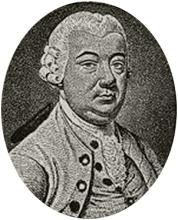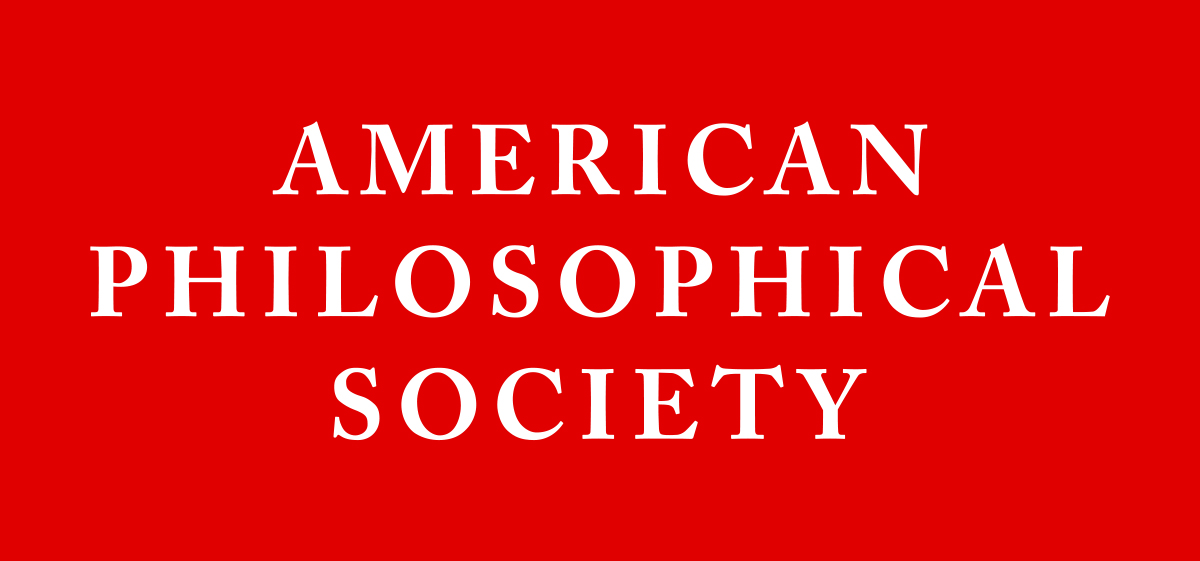Samuel Wharton (260)
Election date: 1768Elected to the American Society.

Samuel Wharton (3 May 1732– March 1800) was a merchant and public officeholder, and a member of the American Philosophical Society via his 1768 election to the American Society. Wharton followed his father into the mercantile business. By 1762 he turned his attention westward and began trading with Indian nations west of the Allegheny Mountains. After heavy financial losses in the wake of Pontiac’s War (1763–66), Wharton secured a windfall when the Treaty of Fort Stanwix (1768) compensated his earlier losses in the form of 200,000 acres in what is now West Virginia. In 1769, Wharton and his business partner traveled to England to secure crown approval of the land cession, but this acquisition of acreage proved but an opening salvo of much grander plans. Joined with other English speculators, Wharton helped form the Grand Ohio Company (also known as the Walpole Company) which proposed a new colony of 20 million acres named Vandalia. The outbreak of the American Revolution, however, eventually ended their grandiose schemes. During this time his expensive lifestyle impressed friends such as Benjamin Franklin and William Johnson, but the Philadelphia Monthly Meeting did not approve and disowned him in 1774. Wharton continued to do business in Europe through the war years, taking an oath of loyalty to the United States in France in 1779. Following the war, he petitioned the newly formed Continental Congress to revive his earlier western land claims. He finally returned to the new United States in 1781 and was elected a representative for Delaware in 1782 despite the fact that he lived in Philadelphia. Financially, however, Wharton was ruined. Though his friends arranged for his appointment to Philadelphia’s Court of Common Pleas to provide him some income in 1784, by 1786 he was bankrupt and his extensive library was sold at auction to help cover his debts. His brother, Isaac Wharton, was also an APS member. (PI)
Publication: London: Printed for J. Ridley, bookseller, St. James’s-Street, [1763]
Subjects:Great Britain -- Colonies -- America. | Ohio River Valley -- Description and travel. | Great Britain -- Colonies -- Administration. | United States -- History -- Colonial period, ca. 1600-1775.
Publication: [London?: s.n.], [1770?]
Subjects:Indians of North America -- Iroquois -- Land transfers -- Early works to 1800. | Land grants -- United States -- Ohio Valley -- Early works to 1800. | Ohio River Valley -- History -- Early works to 1800.
Publication: London, 1774.
Subjects:Ohio River Valley -- History -- To 1795. | Ohio River Valley -- History. | Iroquois Indians -- Land transfers. | Walpole grant.
Publication: London: [s.n.], 1775.
Subjects:Iroquois Indians -- Land tenure -- Early works to 1800.
Publication: Philadelphia: Printed and sold by R. Aitken, bookseller, in Market-Street, three doors above the Coffee-House, [1781]
Subjects:Iroquois Indians -- Land tenure. | Indian land transfers -- West Virginia. | Land grants -- West Virginia.
Publication: London, Printed for J. Almon, 1772.
Subjects:Franklin, Benjamin, 1706-1790. | Walpole grant. | Land grants -- Ohio River. | Iroquoian Indians. | Ohio River -- Colonies. | Ohio River Valley -- History -- To 1795.
Publication: [n.p.], [1771]
Subjects:Ohio River Valley - History - To 1795.
Publication: [London: s.n.], [1774]
Subjects:Land grants -- United States -- Early works to 1800.
Publication: [Philadelphia?: s.n], [1775]
Subjects:Indians of North America -- Treaties. | Iroquois Indians -- Treaties. | West Virginia -- History -- To 1950. | Ohio River Valley -- History -- To 1795.
